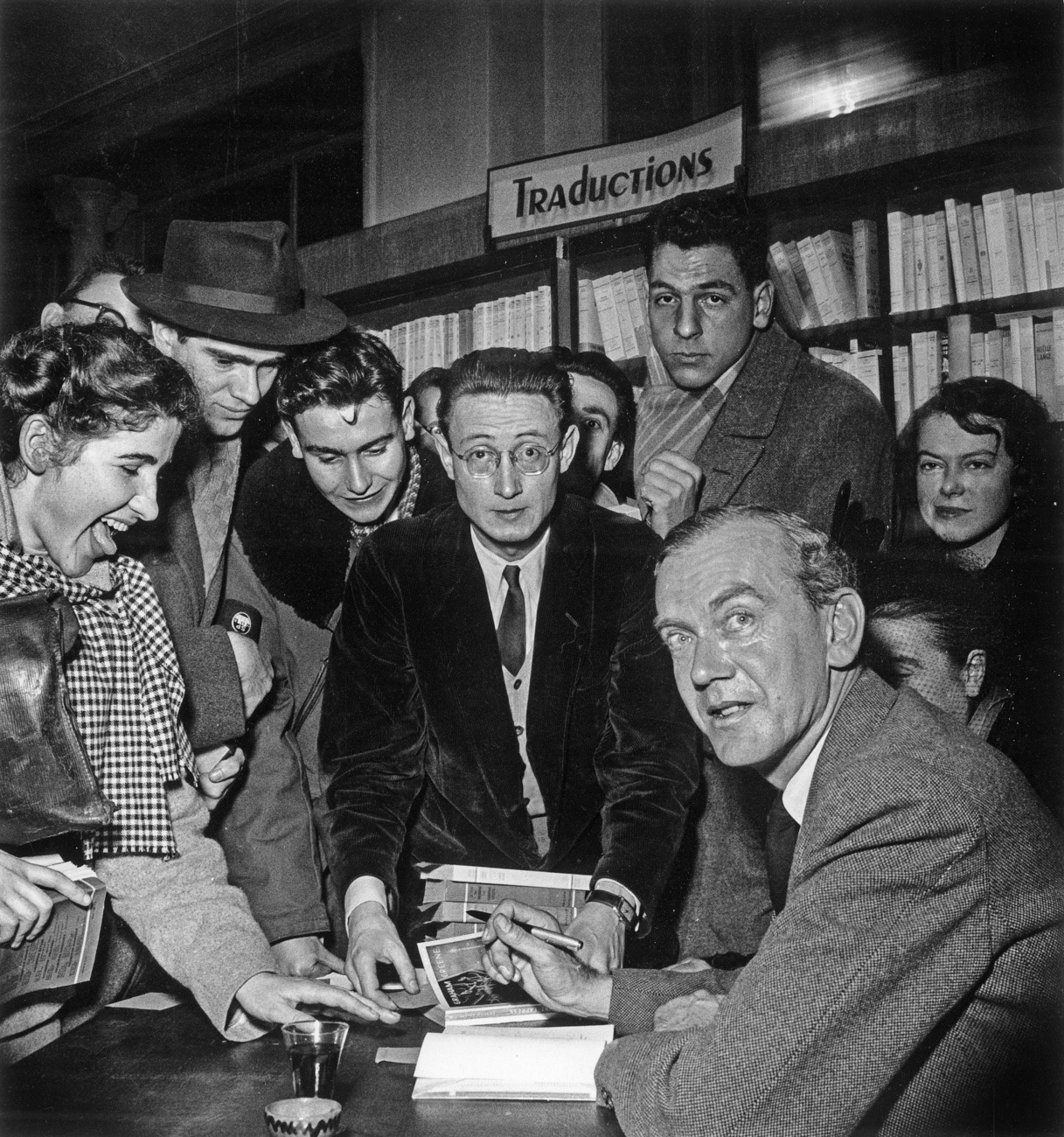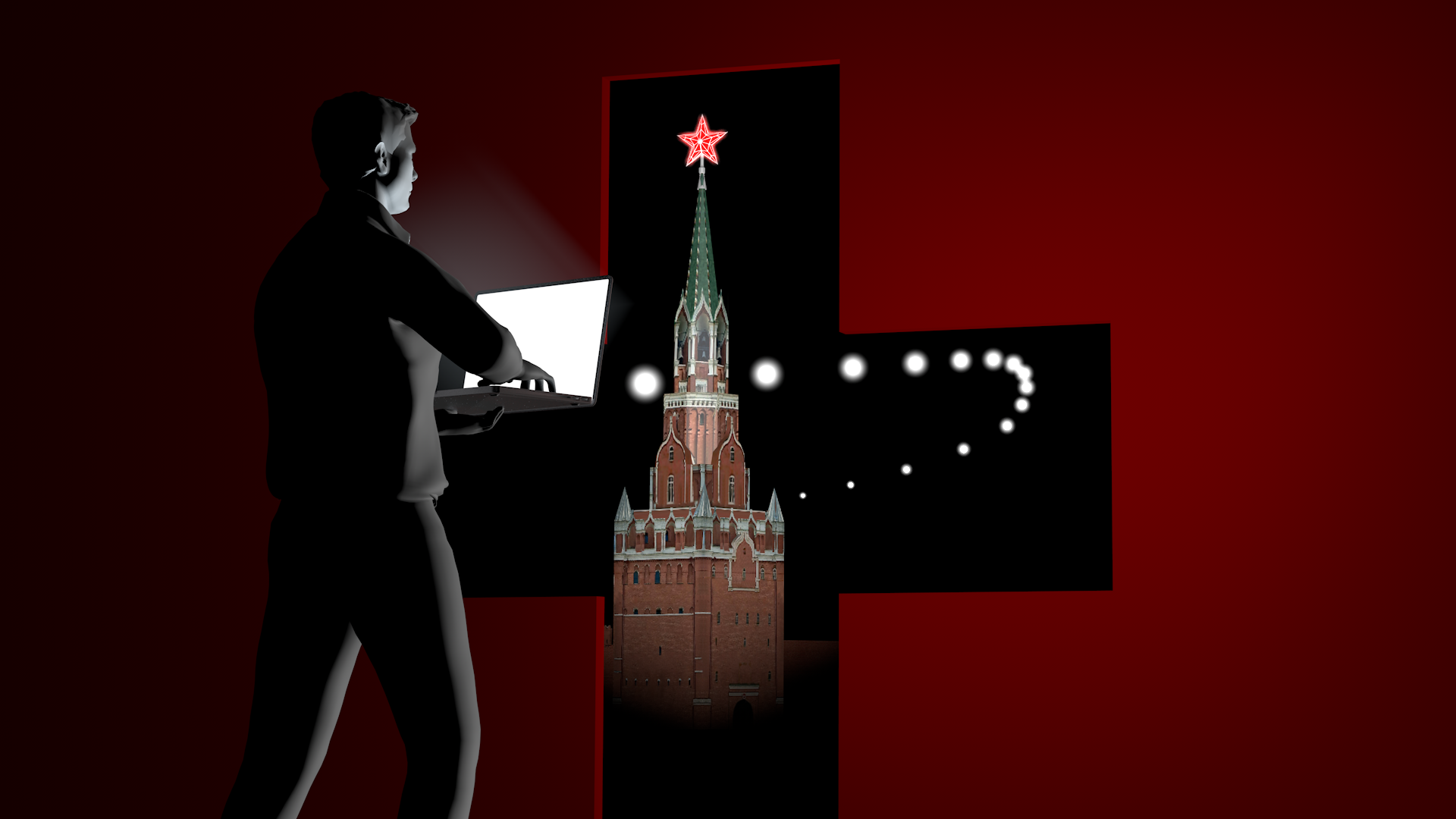Author of thrillers found no Swiss cuckoo clocks

British writer Graham Greene came to Switzerland to live out his old age. His final resting place near Vevey is a far cry from the dangerous and exotic locations of his greatest works.
Greene died on April 3, 1991, in the village of Corseaux, just outside Vevey, after spending his last few months with companion Yvonne Cloetta in a modest flat overlooking Lake Geneva and the French Alps.
Today, his grave in the tiny cemetery in Corseaux is overlooked by those same mountains and the vineyards for which this region is famous.
The headstone, designed by the man responsible for Greene’s Penguin book covers, is plain compared with the other graves in the cemetery. It simply says: Graham Greene 1904 – 1991.
“He would not have wanted anything ostentatious,” says Greene’s daughter, Caroline Bourget, who lives in Vevey.
It’s a peaceful last resting place for a man who became renowned for travelling to and writing about some of the more exotic and dangerous places in the world – the Congo, Sierra Leone, Mexico and Cuba.
When people mention Greene in the same breath as the country where he died, they think of two things: his novel, Dr Fischer of Geneva or the Bomb Party, and a certain line from the classic film, “The Third Man”, for which Greene wrote the screenplay.
Brotherly love
In one of the most memorable scenes in film history, Harry Lime, played by Orson Welles, compares the cultural achievements of Italy and Switzerland.
He says that under the Borgias, Italy had warfare, terror, murder and bloodshed, but they produced Michelangelo, Leonardo da Vinci, and the Renaissance. In Switzerland, they had brotherly love, 500 years of democracy and peace, and all they produced was the cuckoo clock.
“That wasn’t my father’s line,” says Bourget. “Orson Welles put that in. It wasn’t in the original script. And, of course,” she adds, “cuckoo clocks don’t come from Switzerland. They come from the Black Forest.”
Greene only wrote one novel set in Switzerland, Dr Fischer of Geneva or the Bomb Party. Although short, it is one of his more powerful later works, a devastating satire on capitalism and the corrupting power of greed.
It centres around Dr Fischer, a cruel millionaire who has made his fortune from toothpaste. He takes pleasure in humiliating an entourage of parasitic acquaintances by inviting them to dinner parties and giving prizes to those that fulfil his wishes.
The book is dedicated to Caroline Bourget, because the germ of the idea was born one Christmas at her home in Vevey.
“We were pulling Christmas crackers and my father said it would be funny if one of the crackers contained a bomb – a kind of Russian roulette,” she explains. And indeed that is the premise of the climactic “final party”.
Bourget says that the Geneva setting was more a nod to the novel’s Swiss origins than a condemnation of the city’s business leaders. Important scenes in the novel are also based on lakeside houses owned by friends and the ski resort of Les Paccots, where Greene spent time with his grandchildren.
Greene was instrumental in bringing his daughter to Switzerland. It was he who suggested her son’s health problems would improve there.
That was 32 years ago and Bourget has remained in the Vevey area ever since. Indeed her house just outside the town, in which she proudly keeps the medals and awards her father received from various world leaders, was built with the proceeds from the sale of the film rights to The Quiet American.
Chaplin and Ustinov
He visited her regularly, but also spent time with other celebrities, such as Charlie Chaplin and Peter Ustinov, in the Lake Geneva area.
Bourget says that her father never spent much more than a week at a time in Switzerland, but when his health deteriorated, he decided to find a flat near Vevey to be close to his doctor.
This now frail man must have appreciated the tranquillity, because just a few days before he died, he asked to be buried in Corseaux.
“He never thought he would end up in Switzerland,” she says. “He thought he would be considered a tax evader.”
Her father may have appreciated the more sedate life of Corseaux in his final months, but in his younger days, his work took him to far more exciting and dangerous locations: “He loved adventure. He was very much for the underdog, supporting those who were being crushed or oppressed. And Switzerland was very calm. No-one was being oppressed.”
Greene, born in 1904, was a prolific British novelist, playwright, short story writer and critic.
His works explored the doubtfulness of modern man and ambivalent moral or political issues in a contemporary setting.
He combined serious literary acclaim with wide popularity.
He lived the last years of his life in Switzerland and is buried in Corseaux on Lake Geneva.
(This story was first published in 2001.)

In compliance with the JTI standards
More: SWI swissinfo.ch certified by the Journalism Trust Initiative








You can find an overview of ongoing debates with our journalists here . Please join us!
If you want to start a conversation about a topic raised in this article or want to report factual errors, email us at english@swissinfo.ch.